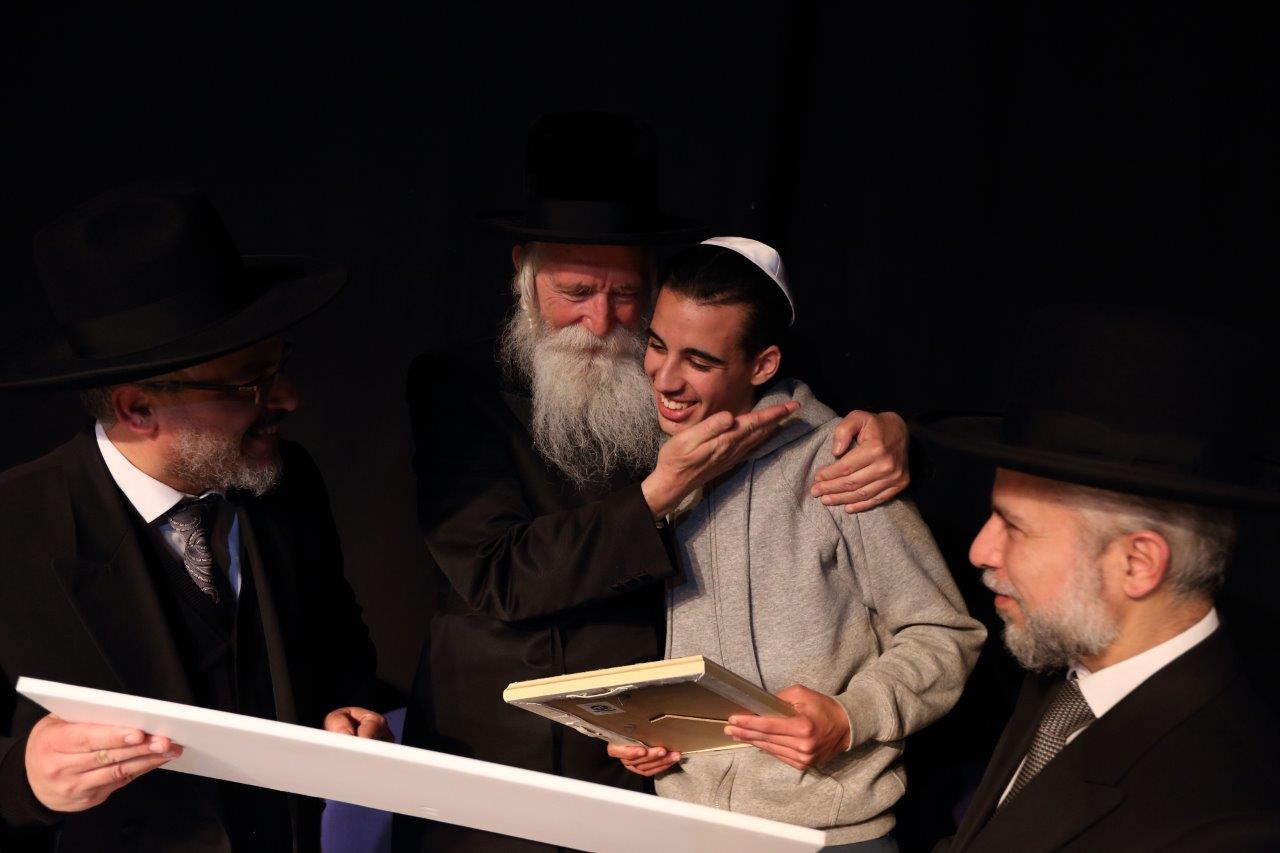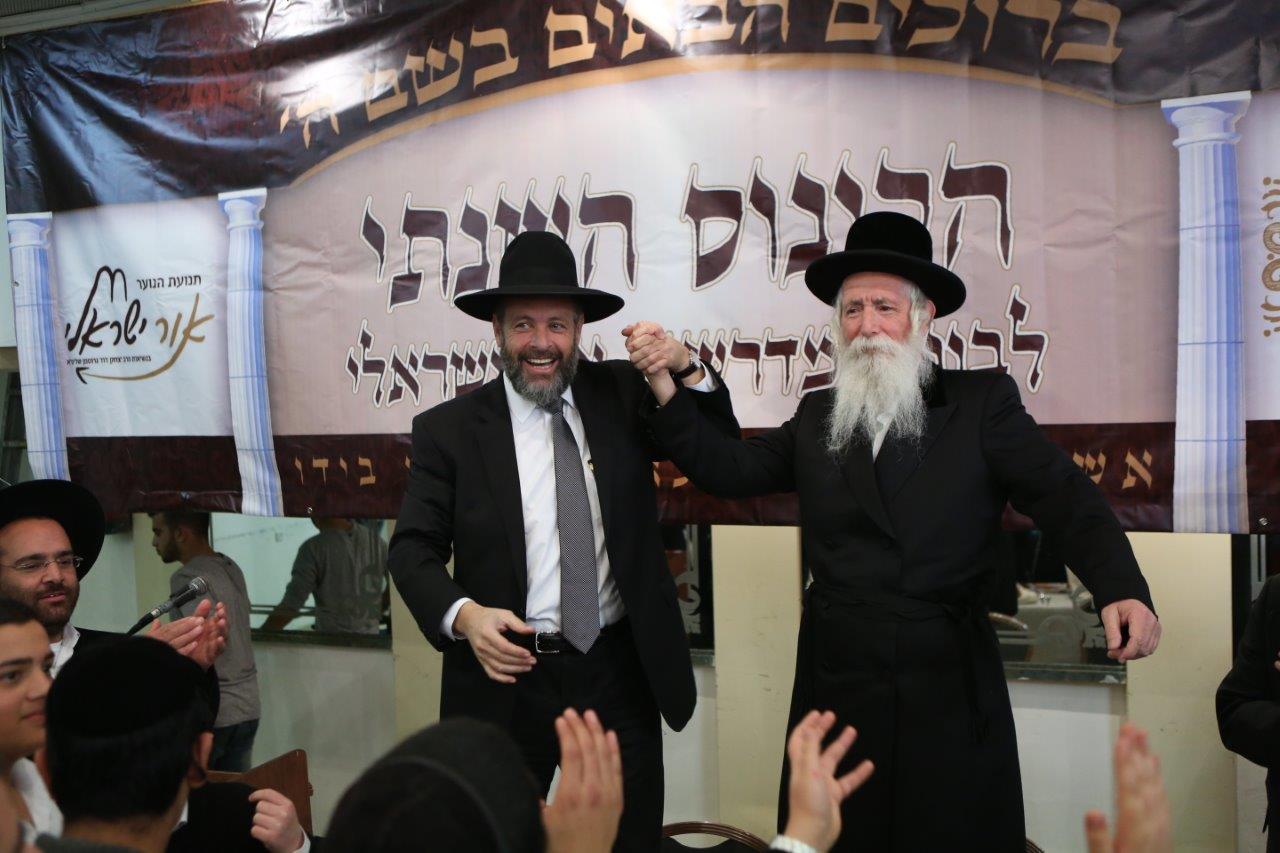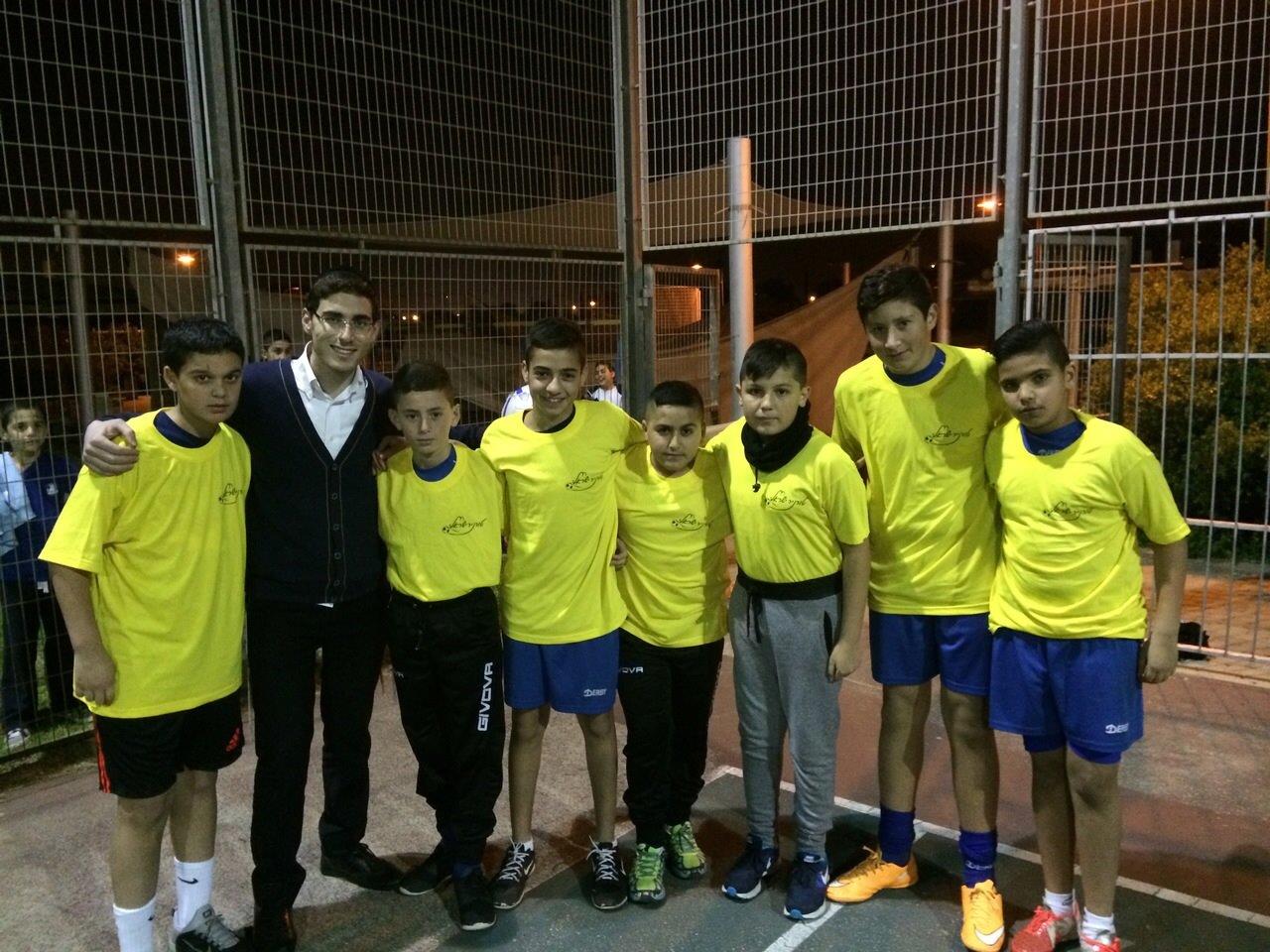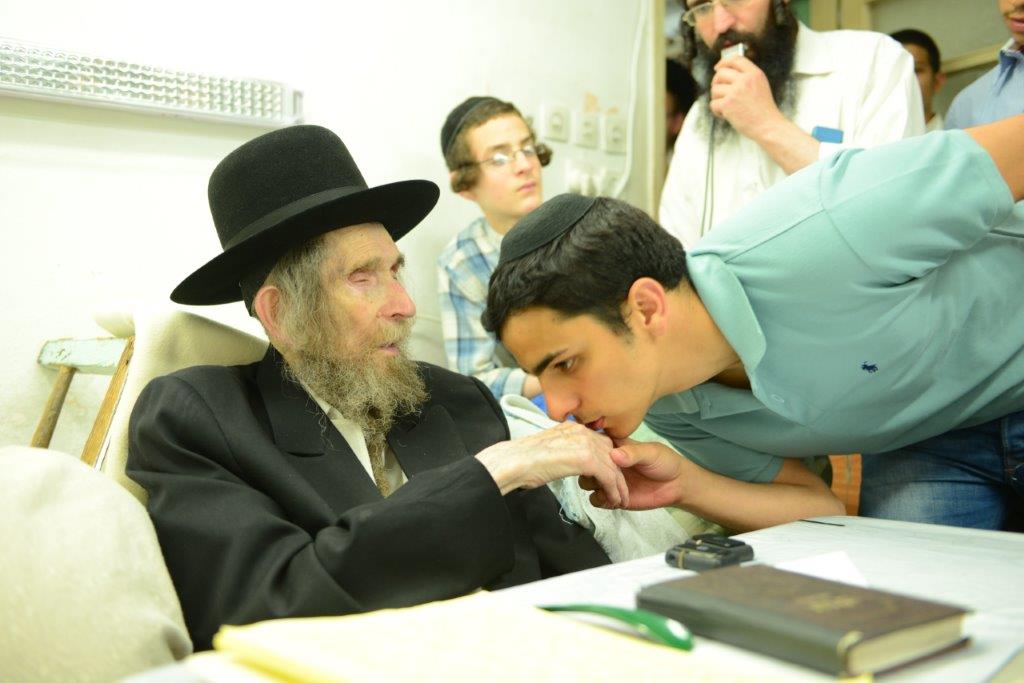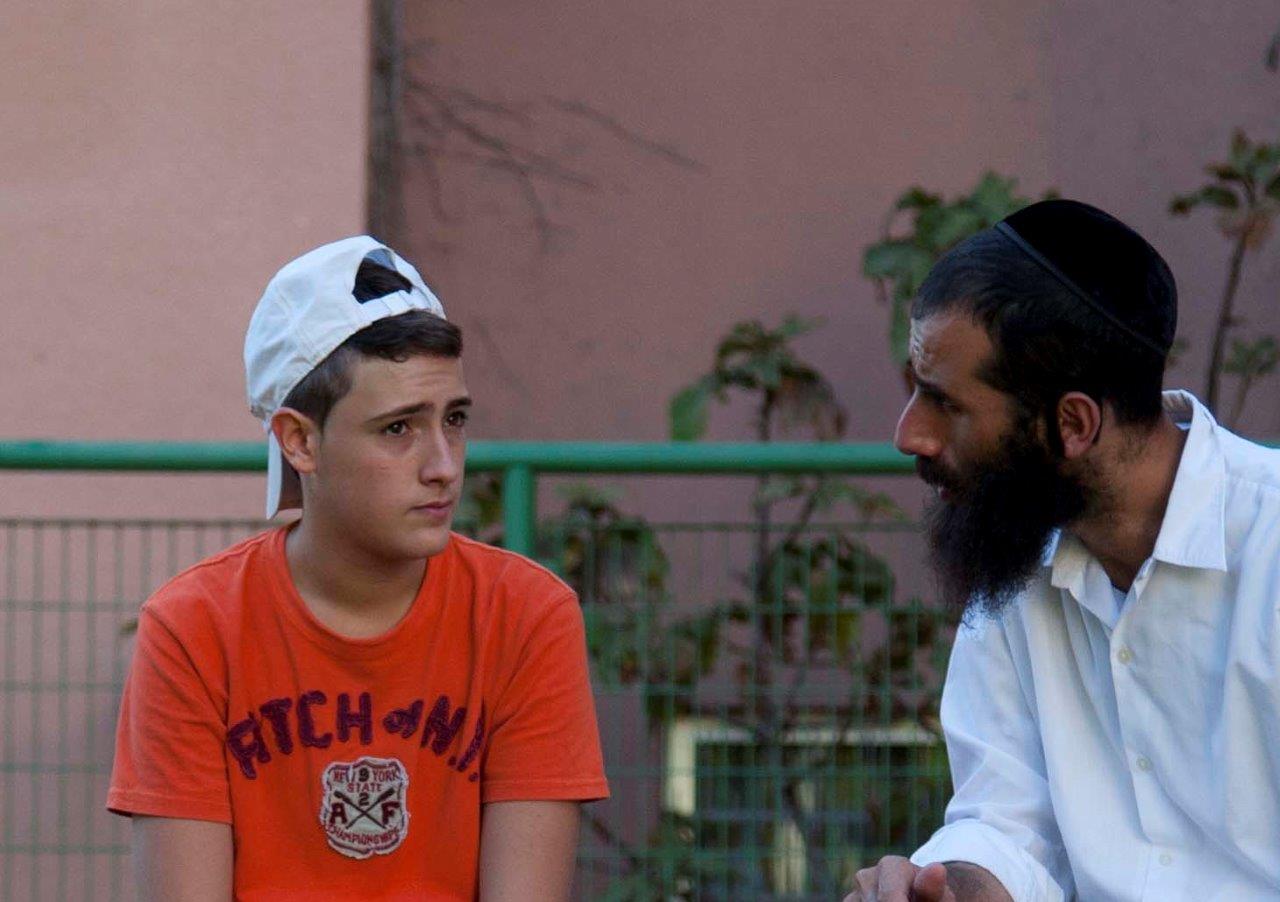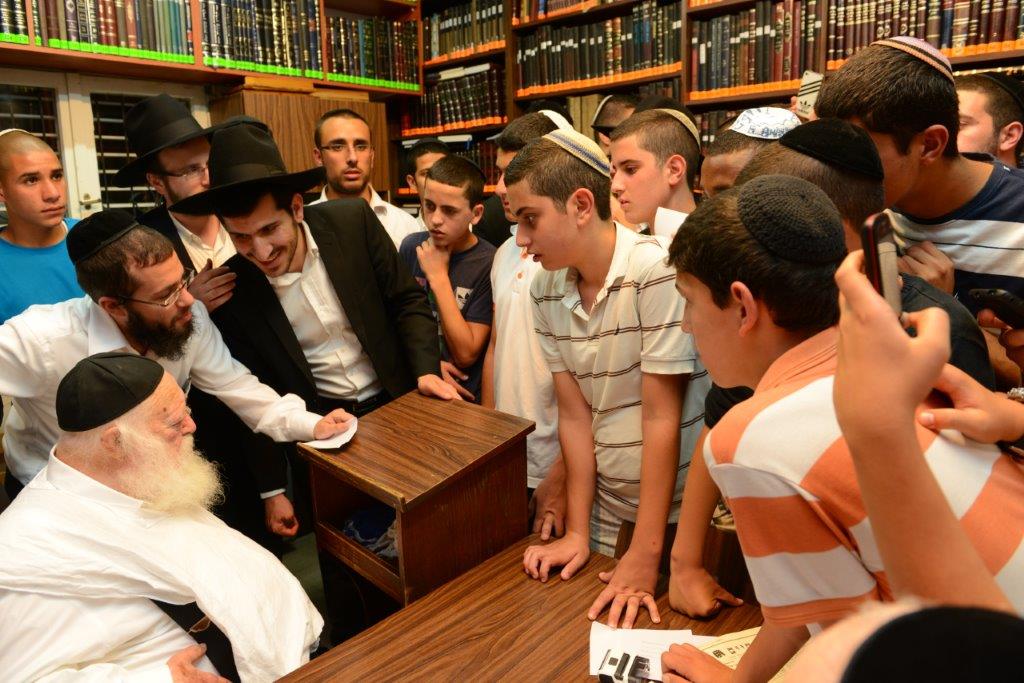What Saved Ten Teenagers from the Barcelona Attack?
Over 14 years of operation, the 'Israeli Light' youth movement has attracted more than 6000 teenagers from secular backgrounds, often with no prior Jewish knowledge. Rabbi Haim Fuchs shares incredible field stories: 'Fortunate is the nation with such children.'
- מיכל אריאלי
- פורסם ד' חשון התשע"ח
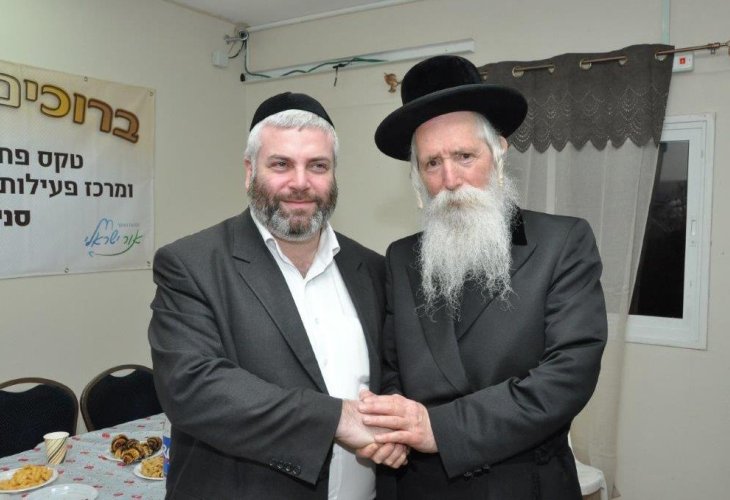 Rabbi Grossman with Rabbi Fuchs
Rabbi Grossman with Rabbi Fuchs #VALUE!
![Ron Amur]() Ron Amur
Ron Amur![A teenager sent in the WhatsApp group to friends]() A teenager sent in the WhatsApp group to friends
A teenager sent in the WhatsApp group to friends![A story written by one of the boys in the group]() A story written by one of the boys in the group
A story written by one of the boys in the group![The tear-off photo]() The tear-off photo
The tear-off photo![]()
![]()
![]()
![]()
![]()
![]()
The murderous attack that occurred about two months ago in Barcelona is hard to forget. Yet, just a month after the horrific attack, a story unfolds that is more incredible than fiction.
The story involves a group of Israeli teenagers who traveled to Barcelona a few days before the attack. One evening, they decided to eat at a restaurant in central Catalonia. A boy from the group named Ron Amur, who regularly attends Torah classes in Ramat Yishai at the study hall of coordinator R' Ariel Peretz, was on the trip. The teenagers entered one of the restaurants, but Ron refused to dine there, claiming the restaurant was not kosher and he did not want to eat unkosher food.
A phone call to the Chabad emissary in the city revealed that there was a kosher restaurant not far away. Consequently, all the teenagers left their seats to find the kosher restaurant. Not more than ten minutes later, a huge explosion destroyed and wiped out the entire restaurant... The teenagers were saved, thanks to observing kosher laws and Ron Amur's participation in Torah classes.
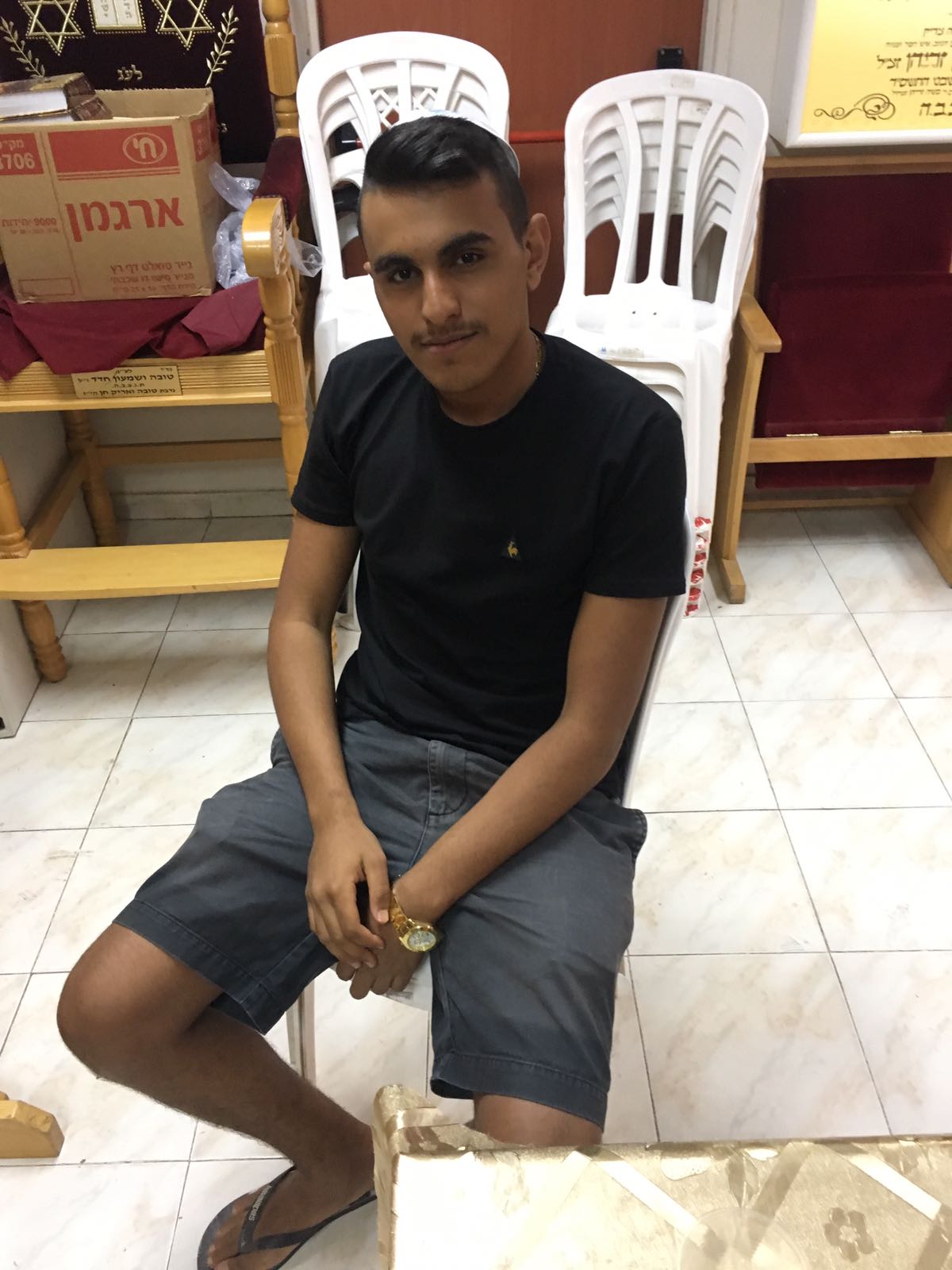 Ron Amur
Ron AmurRabbi Graves Instead of Paintball
This unbelievable story is shared with us by an excited Rabbi Haim Fuchs, coordinator of the 'Israeli Light' youth movement. The movement was established by Rabbi Yitzchak David Grossman 14 years ago and is considered his pride and joy.
"Rabbi Grossman has always had a connection with young people," explains Rabbi Fuchs, "and the establishment of the movement was a response to a ground-level need - to provide a rich framework for teenagers from secular homes across the country and to supply them with content and knowledge about values, good traits, and Judaism. We define it as a 'movement for ethical excellence'.
"The movement started with only five branches, but over the years it has expanded to close to 140 groups across the country, present in almost 60 communities, with more than 6000 teenagers participating in activities. The groups usually meet three to four times a week, and there are branches where activities occur daily, seven days a week.
"One of the most moving events we see each year is at the Selichot services when about 6000 teenagers come together en masse for Selichot prayers. Initially, the event took place at the Western Wall, but in recent years it has moved to Meron. Another moving event is at the end of every year when students are asked to observe the last Shabbat of the year. During that Shabbat, we hold three meals at the branches, gathering over 3000 students who are keeping Shabbat for the first time in their lives. Last year, we conducted an interesting campaign - children were asked to photograph themselves with notes saying, 'I also keep the last Shabbat,' and it caught on amazingly".
But what draws the teenagers to join? What exactly do they do in the branches?
"In their meetings, they are met by yeshiva students who volunteer, simply talking to the boys, giving them discussions, and investing in them. It’s not specifically about Torah learning, but general talks on subjects like values, good traits, honoring parents, and so forth.
"Additionally, they have many activities related to Israeli holidays that they do together – on Sukkot, they build sukkahs together, on Chanukah they light candles, on Passover, they bake matzot, and on Shavuot, thousands of teenagers learn all night. Also, in many branches, we have 'game rooms' with pool tables, table tennis, and more. So besides the classes, the teenagers also play games. But if you ask me what really draws them, I can say the teenagers feel comfortable, there is someone who listens to them and hears them. In the end, the Torah attracts them, and they are drawn to it".
Rabbi Fuchs mentions how far-reaching the impact is, noting that during the summer months and the long vacation, he is amazed to see how dozens of children come to each of the branches throughout the period. "No one forces the teenagers to come, but they simply show up because they feel good with us".
He also has a particularly moving example: "One day, we took the teenagers on a trip where we were supposed to go kayaking, then paintball, and finally visit rabbi graves. After kayaking, the driver told us there wouldn't be enough time for all activities, so we'd have to choose between paintball and visiting rabbi graves, since he wasn't allowed to drive more than 12 hours. The teenagers made a clear decision without the coordinator saying a word - they preferred to visit rabbi graves over paintball. It was moving".
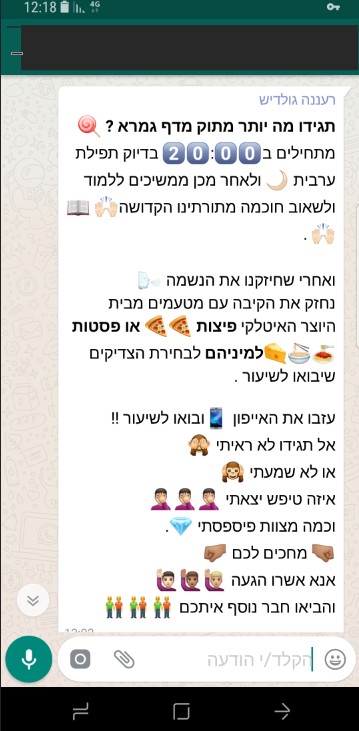 A teenager sent in the WhatsApp group to friends
A teenager sent in the WhatsApp group to friends"What Should We Bless the Rabbi For?"
Rabbi Fuchs emphasizes that these are teenagers from completely secular households, many of whom have never encountered religious people. Some don't know what tefillin are or what blessings are, absolutely nothing.
"A few months ago, we started a class in a northern settlement," he recounts, "and the coordinator brought refreshments and asked them to 'make a blessing'. The teenagers didn’t understand and asked, 'What should we bless the rabbi for?'
"About two years ago, a new teenager joined our study hall, and the coordinator suggested he put on tefillin. The 16-year-old asked, 'What are tefillin?' The coordinator was shocked: 'What? You didn’t have a Bar Mitzvah?' The boy replied, 'Indeed I did, they took me on a trip abroad.' They really come without any knowledge, and they leave with concepts in the weekly Torah portion and Judaism, good traits, and honoring parents. It gets into their minds. How did a boy once tell me? Since I started attending classes, I can't bring myself to curse.' These are amazing achievements. "And by the way", he adds, "in our activities, we generally try not to talk about observing mitzvot, as we know it can lead to friction, and that's not our goal.
"That's also why when teenagers come to activities on Shabbat with electric bicycles or send WhatsApp messages on Shabbat to remind about a class, we don't say a word, but accept them as they are without preaching to them".
Still, aren't there parents who oppose this?
"There are very few who oppose it. Most are happy knowing their children are in a good place and not up to nonsense. Over the years, more than 20,000 teenagers have passed through our ranks, and very few parents opposed it. You wouldn't believe, but quite recently there was a boy who came to his instructor and secretly revealed that he had moved, so he couldn’t come to the class anymore. The instructor offered to drive him to his new home afterward, and then the boy revealed that he had moved with his mother to an Arab village. As odd as it sounds – he continued to come from the village to the class, each time anew, because his mother herself encouraged him. Yes, there were small fiascos here and there when parents came with complaints about us teaching their kids Judaism, but in the end, they also came around because they saw their kids respect them more and speak more politely, it simply made a change at home.
"Our coordinator in Kiryat Tivon recently told me that during the summer, he studied with the kids a special booklet on honoring parents. A few weeks later, a 16-year-old boy came to him and said: 'I have to tell you something. For a few weeks now, I haven’t been speaking with my parents, and I don’t go home. I sleep over at friends’ homes, but after all we’ve learned, I feel it’s not right. What can I do?' The coordinator listened to his confession and asked him: 'Are you a man?' He affirmed, and then he said: 'Then do what I suggest - take a piece of paper and write a letter to your mother, telling her you apologize. Buy a bouquet of flowers and come home with the bouquet and the letter.' And that's exactly what happened. That same evening, the boy's mother came to the coordinator and said in astonishment: 'How did you manage to do this to my son? For weeks we've been waiting for him to come home, and you did the unbelievable.'"
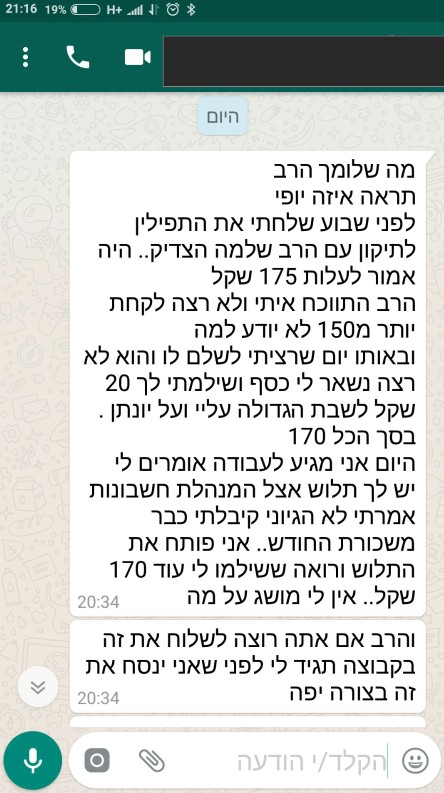 A story written by one of the boys in the group
A story written by one of the boys in the group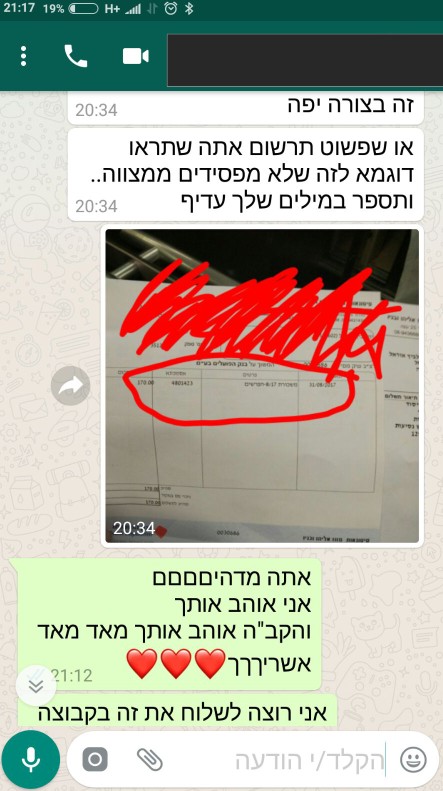 The tear-off photo
The tear-off photoUnmatched Satisfaction
Rabbi Fuchs himself, in his role as the movement's coordinator, travels every evening to another region in the country to visit branches and manage activities. "The work is very attractive, but also exhausting because it demands a lot of innovation and creativity. We are constantly trying to initiate new things – campaigns, lotteries, activities because it is important to us to interest the children," he explains.
What gives you power in this endless activity?
"What's the question? The immense satisfaction, it's satisfaction that cannot be put into words. Just yesterday evening, I arrived at one of the settlements, where I was told the class is now held at the home of one of the yeshiva students learning with the teenagers. What turned out to be is that the yeshiva student moved that same day and didn't want to forgo the class, so the teenagers come to study at his new home.
"I saw them sitting there on boxes, and he explained to me: 'I came to the conclusion that instead of bringing ten yeshiva students to inaugurate the house, I prefer to bring the teenagers; they will surely bless my home.' And it’s so true because everyone involved in this work feels the immense privilege of working with young people. These are teenagers that sometimes come from difficult backgrounds; some have been taken out of crime or drug circles and simply become human. Everyone who meets them understands how much of a mission there is here and how much satisfaction there is."
In conclusion, Rabbi Fuchs cannot hold back from telling this story: "It was during the Protective Edge operation. There were heavy attacks in the south, and one of the teenagers living in Sderot came to the central area to relax a bit from the rockets. He stayed with family in Ramat Gan and attended our branch in Ramat Gan daily. After about a week and a half, he called his parents and told them he wanted to return home, but finally, it turned out there was an activity in the branch that evening, so he decided to stay another day and return the next day. "Exactly that night," concludes Rabbi Fuchs with a trembling voice, "a rocket fell on the boy’s house in Sderot, exactly in his room. Who knows what would have happened if he hadn’t stayed to study in Israeli Light?"
